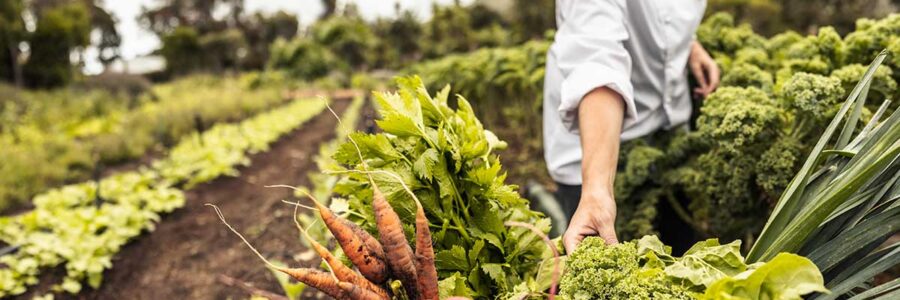The Post-WWII Transformation of Agriculture
In the wake of World War II, the world witnessed a dramatic shift in its food systems. The advent of industrial agriculture revolutionized farming practices, introducing mechanization, chemical fertilizers, and genetically modified crops. This shift was driven by the need to feed a rapidly growing global population and to overcome the food shortages experienced during the war. However, while these advancements significantly increased food production, they also led to unintended consequences for food quality, environmental health, and biodiversity.
The Challenge of Accessing Fresh Produce
Today, one of the major challenges in our food system is ensuring access to fresh, healthy produce. Urbanization and the dominance of processed foods have created ‘food deserts’ where fresh produce is scarce. Moreover, the global supply chain, favoring durability over nutrition, often leads to a decrease in the quality of fruits and vegetables available to the consumer.
The Rise of Sustainable Farming: Permaculture and Organic Farming
In response to these challenges, sustainable farming practices like permaculture and organic farming are gaining traction. Permaculture focuses on creating sustainable and self-sufficient agricultural ecosystems. It emphasizes biodiversity, natural ecosystem processes, and a holistic approach to land management. Organic farming, on the other hand, avoids the use of synthetic pesticides and fertilizers, fostering healthier soil and producing food with higher nutritional value.
Grass-fed vs. Grain-fed Livestock: A Comparison
The debate between grass-fed and grain-fed livestock is crucial in understanding the environmental impacts of meat production. Grass-fed ruminants, which graze on pastures, contribute to soil health and carbon sequestration. This method mimics natural ecosystems, supporting biodiversity and reducing the need for chemical inputs. In contrast, grain-fed livestock, often raised in concentrated animal feeding operations (CAFOs), contribute to environmental degradation through overuse of antibiotics, pollution, and higher greenhouse gas emissions.[1]
Environmental Implications of Meat Production
Different farming models have varied impacts on the environment. Traditional, industrialized meat production is resource-intensive, contributing significantly to greenhouse gas emissions and deforestation. Conversely, regenerative agricultural practices, which include rotational grazing and mixed-cropping, can enhance soil health, increase biodiversity, and even help mitigate climate change by capturing atmospheric carbon.
Ethical Considerations in Food Production
The ethical dimension of food production cannot be overlooked. This encompasses animal welfare, where practices like factory farming raise serious ethical concerns. Consumers play a pivotal role in driving demand for ethically produced food, which can lead to better living conditions for farm animals and more responsible farming practices.[2]
Health Benefits of Sustainably Produced Foods
There is a growing body of evidence supporting the health benefits of sustainably produced foods. These foods often have a higher nutritional content, including more antioxidants and omega-3 fatty acids, especially in the case of grass-fed meat and organic produce. In contrast, industrialized food production processes can lead to food with lower nutritional value and potential contamination with harmful chemicals.
Supporting Evidence: Expert Opinions and Scientific Studies
Numerous studies and expert opinions underline the points made in this discussion. For example, research has shown that organic farming can increase soil organic matter, leading to better soil health and productivity. Similarly, studies on grass-fed livestock have demonstrated environmental benefits such as improved soil carbon storage and better water retention.
Conclusion
The evolution of our food systems from post-WWII industrialization to modern sustainable practices highlights a complex interplay of factors including food availability, quality, environmental impact, ethics, and health. Embracing sustainable farming practices and making informed choices as consumers can contribute to a more ecologically balanced and health-oriented food system. As we continue to face global challenges such as climate change and population growth, the significance of sustainable agriculture becomes ever more pronounced, underlining the need for continued innovation and adaptation in our food systems.
References:
- Frederick D. Provenza,Scott L. Kronberg, and Pablo Gregorini.Is Grassfed Meat and Dairy Better for Human and Environmental Health?2019; 6: 26.2019 Mar 19. doi: 10.3389/fnut.2019.00026.PMCID: PMC6434678.PMID: 30941351
- Elein Hernandez, Pol Llonch, and Patricia V. Turner.Applied Animal Ethics in Industrial Food Animal Production: Exploring the Role of the Veterinarian.12(6): 678.2022 Mar 8. doi: 10.3390/ani12060678.PMCID: PMC8944692.PMID: 35327076


